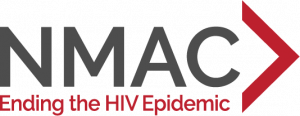
NMAC Offers Administration for a Healthy America (AHA) Four Recommendations for Continued Impact in HIV Prevention
"On behalf of NMAC, I write to express urgent concerns—and offer clear recommendations—as the newly established Administration for a Healthy America (AHA) takes shape amid the sweeping restructuring announced by Health and Human Services Secretary Robert F. Kennedy, Jr and commitments made during President Trump’s 2019 State of the Union Address, where he promised to end the HIV epidemic by the year 2030.
We recognize that AHA has the potential to improve efficiencies via the coordination of health services, particularly across areas like primary care, mental health, maternal and child health, and HIV prevention. However, potential alone is not enough. If this new agency is to fulfill its mission, especially its stated commitment to vulnerable and low-income communities, significant new resources, staffing, and subject-matter expertise must be guaranteed. The new agency cannot succeed without it.
Also, while efficiencies are important, strategic investment is critical. The federal Ending the HIV Epidemic (EHE) initiative has already prevented more than 9,500 new infections—representing an estimated $3.9 billion return on investment. Dedicated, sustained funding is essential. Without continued focus on HIV prevention, those gains stand to be reversed, and the resulting costs—both human and financial—will only grow.
Secretary Kennedy stated this overhaul is meant to “do more—with less.” But in the context of HIV prevention, doing more requires more. More investment, community engagement, and accountability to those most impacted by infectious disease. In particular, we urge you to prioritize:
1. Full integration of HIV treatment, HIV prevention, STI, viral hepatitis, and substance use prevention. These epidemics are deeply intertwined, particularly in priority populations. Breaking down artificial divisions—as the restructuring aims to do—will only be effective if integration of prevention programs is reflected in program design, funding streams, and staff structures.
2. Retention and elevation of HIV prevention experts. Staff reductions across HHS, including the projected loss of 10,000 employees, must not come at the expense of HIV prevention capacity. We need seasoned professionals who understand both science and community trust.
3. Dedicated, increased funding for HIV, hepatitis, and harm reduction programs. Reorganizing departments is not a substitute for funding. In fact, transitions of this scale carry inherent risks of disruption. Those risks are greatest for people living with HIV and communities with already limited access to chronic disease care and disease prevention programs.
4. Authentic partnership with community-based organizations, especially those led by people with HIV and those disproportionately impacted by HIV. These organizations are often the only access point for health services in marginalized communities. They must not be overlooked in the centralization of resources or the shift in regional structures.
As AHA pursues its broader mandate—including reducing rates of chronic disease—working directly with vulnerable and low-income communities is not optional; it is essential. Communities disproportionately affected by HIV are often the same communities facing higher burdens of diabetes, cardiovascular disease, and other chronic conditions. Neglecting infectious diseases and substance use disorders within these populations will only make AHA’s broader goals more difficult—if not impossible—to achieve.
NMAC urges AHA leadership to move forward with a clear-eyed understanding: ending the HIV epidemic will not happen by accident or by administrative reorganization. It will only happen if the federal government makes an explicit and measurable commitment to protecting these programs, the workforce behind them, and the lives they serve.
We stand ready to support AHA’s success, which must be defined by the protection and elevation of public health efforts, not just the streamlining of bureaucracy."
Pavni Guharoy
NMAC
+1 240-372-8394
email us here
Visit us on social media:
LinkedIn
Instagram
Distribution channels: Healthcare & Pharmaceuticals Industry, Human Rights, Media, Advertising & PR, Politics, U.S. Politics
Legal Disclaimer:
EIN Presswire provides this news content "as is" without warranty of any kind. We do not accept any responsibility or liability for the accuracy, content, images, videos, licenses, completeness, legality, or reliability of the information contained in this article. If you have any complaints or copyright issues related to this article, kindly contact the author above.
Submit your press release
